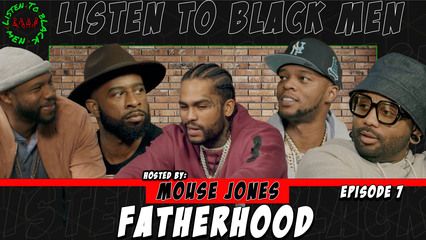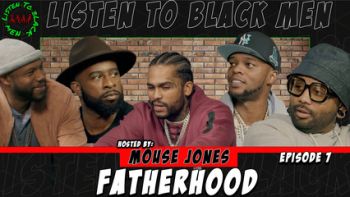
Source: Andrew H. Walker / Getty
Most couple’s posts don’t go viral. But a recent update from Elijah Bankole and Heron Abegaze garnered a lot of attention for a very good reason: They paid off all $162k of their debt in less than three years. With financial literacy and personal wealth being hot topics, it’s understandable why the masses rejoiced. The duo’s win has folks daydreaming about life after debt. The reality is that most people are laden with loans, whether from credit cards, higher education, cars, or a mortgage. CASSIUS caught up with Elijah and Heron to talk about how they created—and more importantly, eradicated—that burden.
CASSIUS: Where did this debt come from and why did you create a plan to pay it off?
Heron: My motivation was really to avoid overpaying on debt [because a lot of interest accrues]. When I was in grad school, I calculated how much I was paying on interest rates alone and realized paying just the minimum was not going to get us out of debt.
Elijah: Heron is the one who introduced the idea of paying off debt to me. I felt we were living fine, so initially I protested it. I wasn’t losing sleep about it, but once Heron broke it down for me the light bulb went off and I got all the way onboard. Looking back, I don’t know how I thought just making payments was okay.
C.: You said you wanted to tally debt separately… why?
Heron: Initially we weren’t living together, so we were tackling our debt separately. Once we got engaged and moved in together, we researched and realized it was smarter to maximize our income by combining and living off just one. We held each other accountable.
C.: How long did it take you to pay it off?
Elijah: From the time we started aggressively paying off debt to debt free was two years and 10 months. We had to stop eating out and said no to invites from friends. I traveled regularly for work, so I sold my car and gave my brother $1,000 for the old car he had sitting at our mom’s house. It got me from home to the airport and the money I got from selling the car, I used to expedite the debt-free process.
Heron: In the process of the debt-free journey, we were also planning our wedding, which we delayed to focus on paying off debt. When we did get married, our wedding was small and intimate like we wanted. I also told our families we didn’t want any more gifts for Christmas, and in turn, I made them handmade gifts. We did date nights in the house, something small like wine and Netflix. If there was a special occasion we had to attend like a relative’s wedding, we just sacrificed and went, but didn’t go overboard.
C.: No gifts. No dining out. How did your family and friends handle your changes?
Elijah: Some of our friends actually laughed at us. We were the people that always went out to eat and to functions so some friends didn’t get it at first, but they have come around and even ask us for advice now. Our families were very supportive.
Heron: Yes, my parents were in favor of us moving in together, delaying the wedding and focusing on debt. They were more anxious about that than the wedding.
C.: Less than three years seems like a pretty quick turn around. How much were you paying a month and did you have a special system for paying off items?
Heron: We were paying about $4,500 to 5,000 a month. We followed the rules from Dave Ramsey’s “7 Baby Steps to Financial Peace.” We used his snowball method to pay off debt from smallest to largest.
C.: We see a lot of financial literacy resources targeted at women, but not as much for men. Do you think there is an imbalance with the messages?
Elijah: Yes, there’s a misconception that men are better with money. Because of ego though, I don’t think men want to actually admit they’re in debt, unlike women who will be honest about it. Even with our story hitting the internet, I’m seeing women in the comments tagging their boyfriends and husbands to get on board.
Heron: There’s also this misconception that women spend more. I feel like that’s why more financial literacy is geared more toward women. In our household, I’m the more frugal one and that’s what I saw growing up with my parents. My mom was more into deals and coupons.
C.: Do you have any advice for people with student loans or other debt?
Heron: For me as a first-generation college student and child of immigrants, I didn’t know about financing school. I just knew I was going to college, but I didn’t get any financial aid for the first two years. I would say parents and children should ask more questions up front. At 18, taking out loans is a major decision and you don’t realize exactly how much it all is until the college exit interview four years later. If you already have debt, there are a lot of free resources like YouTube with people sharing their stories and journeys. You should acknowledge your debt, write down every single debt and make a plan.
Elijah: First thing you need to do is come to terms with the debt you have. Once you have a plan, keep on the course and always remind yourself of the why. If you have two good incomes, live off one. Heron opened my eyes on that one. I can’t thank my wife enough for bringing me to this point! If you are blessed enough to have a wife like mine you are a very lucky man.
C.: What are you excited to do now that you are debt free?
Elijah: Of course things like traveling that we delayed due to debt, but also being able to give back to our loved ones with the financial knowledge we gained. We now have four to five family members on the same plan we were on. I’m also excited for us to buy our first home!
Heron: I’m excited about investing in our future. It’s like losing weight, once you get a taste of a healthy financial lifestyle you feel amazing.
Arielle Neblett is a freelance writer for CASSIUS.
















